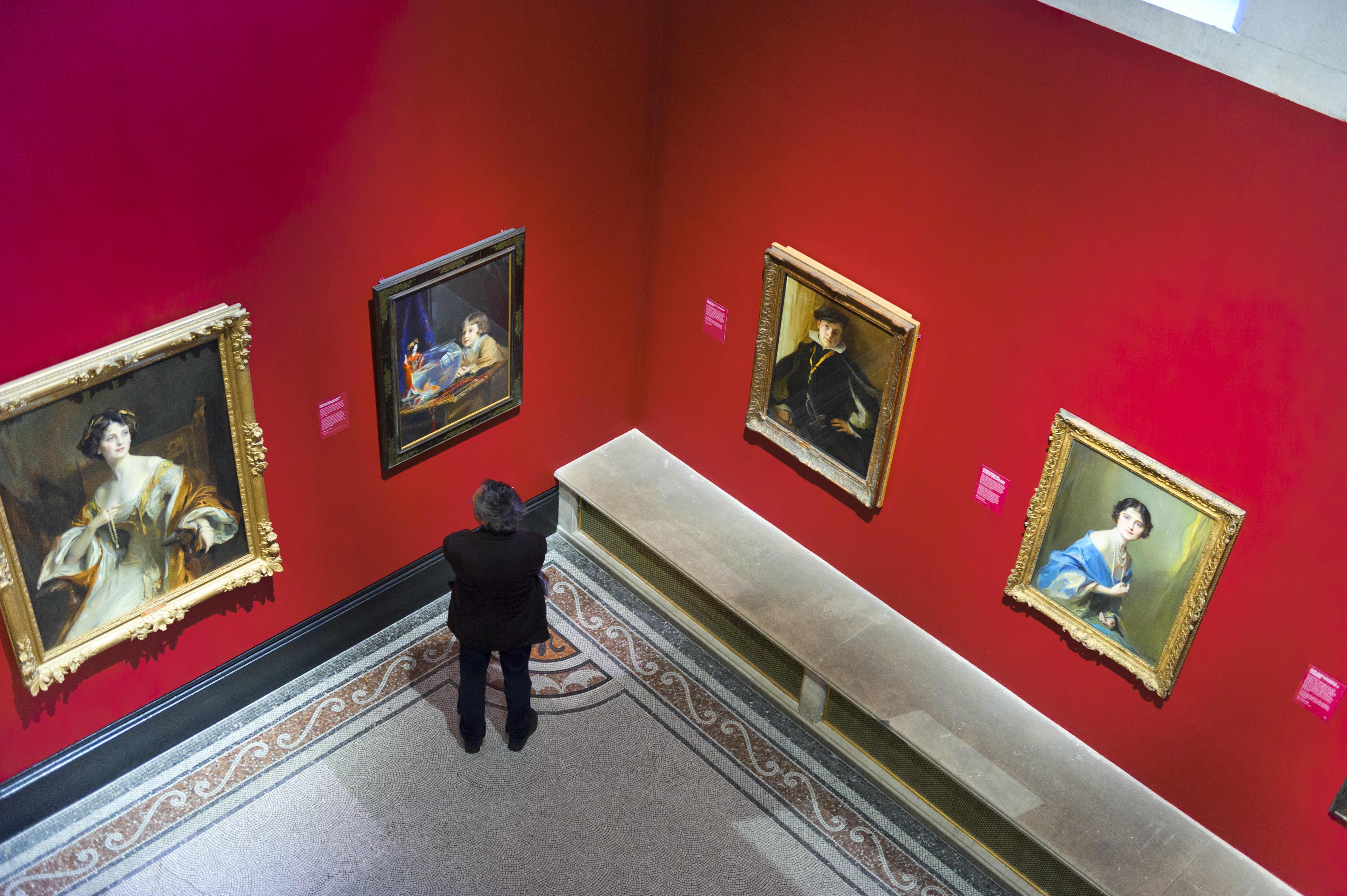Is the modern world starved for beauty?
Here's the problem with this popular philosophy


A free daily email with the biggest news stories of the day – and the best features from TheWeek.com
You are now subscribed
Your newsletter sign-up was successful
The modern world has brought us a cornucopia of wealth and material satisfaction, but most people would agree that it has also brought with it a certain kind of malaise. Just ask jihadi tourists.
One venerable strand of thought in philosophy holds that this is because the modern world has forgotten about beauty. This narrative is mainly (but not only) the province of conservatives, and as a conservative I find myself drawn to it, like a work of art. But at the same time, I am skeptical.
The interpretation is based on what Plato called the "transcendentals," those higher things which we pursue for their own sake. Classically, the three great transcendentals are the True, the Good, and the Beautiful, and a life well-lived is a life spent in pursuit of them.
The Week
Escape your echo chamber. Get the facts behind the news, plus analysis from multiple perspectives.

Sign up for The Week's Free Newsletters
From our morning news briefing to a weekly Good News Newsletter, get the best of The Week delivered directly to your inbox.
From our morning news briefing to a weekly Good News Newsletter, get the best of The Week delivered directly to your inbox.
For instance, the scientist and the philosopher pursue truth for its own sake. The woman who throws herself under the wheels of a truck to save a wandering child pursues the moral good for its own sake. And the art lover pursues beauty for its own sake.
According to this narrative, then, the rationalistic project of the Enlightenment was so consumed with the True and the Good that it forgot about the ancient concern for the Beautiful. We products of this civilizational shift are then left robbed of what ought to fulfill one of our deepest aspirations, left with a deep longing that we have forgotten how to name.
There is certainly something to be said for the idea. How else to explain our incredible fascination for the persona of Steve Jobs, and for the devices he created, if not for the fact that he was perhaps the only maker of electronic devices — that modern artifact par excellence — who believed to the tips of his fingernails that beauty, and not just functionality, was key? Doesn't our deep passion for a maker of disposable gizmos betray precisely that we are so starved of beauty that we'll run towards anyone who takes it halfway seriously?
That said, I am not so sure. Firstly, the narrative is just a little bit too tidy. Rationalism, relativism, philosophical pseudo-Darwinism — under this interpretation, all those bugbears can be relegated to the simple status of philistinism. Similarly, the implied remedy is both once all-encompassing and yet not-that-threatening: All we need to do is beautify everything.
A free daily email with the biggest news stories of the day – and the best features from TheWeek.com
More importantly, when one looks at the history of ideas, one finds it hard (with some exceptions, of course) to find this supposedly central ancient concern for the capital-B Beautiful. One instead very easily finds it as a Modern phenomenon.
This narrative of ancient aestheticism against bloodless modern rationalism was actually most famously embraced and popularized by the Romantics, a modern bunch par excellence. And describing or grasping "the Beautiful" as a forgotten truth was one of their chief concerns.
And there are some other problems with this narrative. It wasn't written only by crusty conservative philosophers in their picturesque English cottages, but also by Friedrich Nietzsche, he of the Superman, and after him, by the world's totalitarian movements, which were consciously an effort to re-aesthetize the world. To focus too much on the Beautiful, perhaps, is to lose sight of the True and the Good. The world's ugliness is also its poverty, and a painter will all too readily erase it from his perfect picture.
According to Plato and his followers, the True, the Good, and the Beautiful were transcendentals because they were really ideas in the mind of the divine, only fleetingly grasped in this life. When Christian thought came on the scene in the ancient world, its thinkers took this idea and ran with it: the True, the Good and the Beautiful weren't just aspects of God's true nature, they said, but expressions of God's true nature, love. Perhaps love really is the true end-in-itself, the true transcendental.
If so, perhaps that is what the modern world is really lacking. Perhaps that would be the true and good thing that would beautify everything. And perhaps the reason we don't want to say it too loudly is because it is at once so trite, and so daunting at the same time.
Pascal-Emmanuel Gobry is a writer and fellow at the Ethics and Public Policy Center. His writing has appeared at Forbes, The Atlantic, First Things, Commentary Magazine, The Daily Beast, The Federalist, Quartz, and other places. He lives in Paris with his beloved wife and daughter.
-
 Trump wants a weaker dollar but economists aren’t so sure
Trump wants a weaker dollar but economists aren’t so sureTalking Points A weaker dollar can make imports more expensive but also boost gold
-
 Political cartoons for February 3
Political cartoons for February 3Cartoons Tuesday’s political cartoons include empty seats, the worst of the worst of bunnies, and more
-
 Trump’s Kennedy Center closure plan draws ire
Trump’s Kennedy Center closure plan draws ireSpeed Read Trump said he will close the center for two years for ‘renovations’
